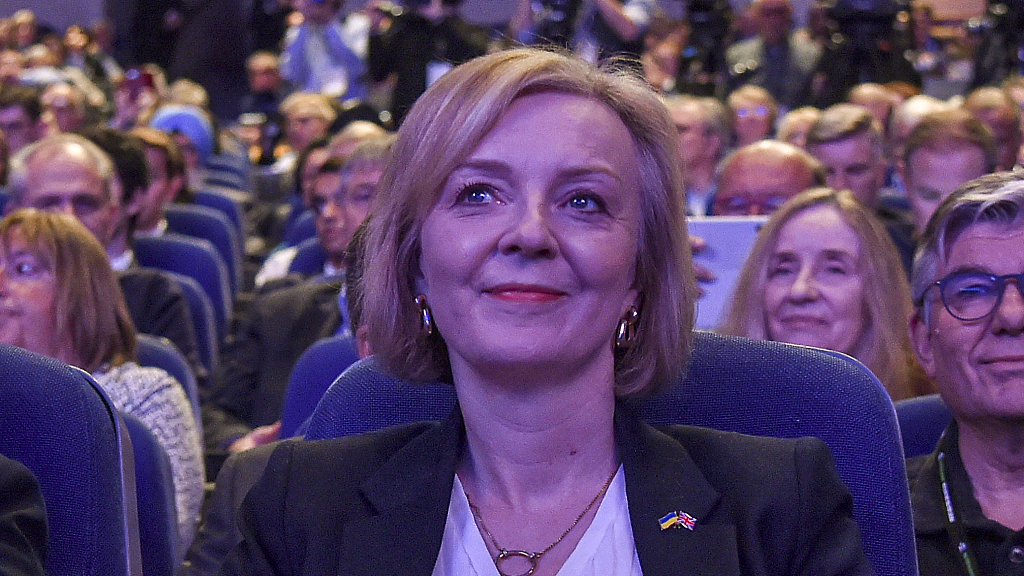
Britain's Prime Minister Liz Truss listens to Britain's Chancellor of the Exchequer Kwasi Kwarteng speaking at the Conservative Party conference at the ICC in Birmingham, England, October 3, 2022. /CFP
Britain's Prime Minister Liz Truss listens to Britain's Chancellor of the Exchequer Kwasi Kwarteng speaking at the Conservative Party conference at the ICC in Birmingham, England, October 3, 2022. /CFP
Britain's new Prime Minister Liz Truss triggered a fresh row in her party on Tuesday by suggesting that she could limit increases in benefit payments by less than soaring inflation as she seeks ways to fund her tax-cutting growth plan.
Britain's new leader has endured a tumultuous time since she came to power on September 6, first leading national mourning for Queen Elizabeth before releasing an economic package that immediately roiled financial markets.
Seeking to snap Britain out of more than 10 years of economic stagnation, Truss and Chancellor of the Exchequer Kwasi Kwarteng set out 45 billion pounds ($51.1 billion) of unfunded tax cuts on September 23 alongside promises to deregulate the economy to stoke growth.
On Monday they bowed to pressure to scrap the most divisive policy—eliminating the top rate of income tax for the highest earners—and are now working urgently on the full details of the plan and how they will be able to afford it without leaving a huge black hole in the country's public finances.
"We have to look at these issues in the round. We have to be fiscally responsible," Truss told BBC Radio when asked whether benefit payments would rise in line with record-high inflation to prevent the poorest in society from becoming poorer.
Immediately lawmakers in Truss's Conservative Party - some fresh from forcing top tax rate reversal - opposed any move to reduce the increases in benefits at a time when millions are struggling with higher costs of food and energy.
Penny Mordaunt, who is in Truss's cabinet of senior ministers, said benefits should rise in line with inflation. Damian Green, part of the Conservatives' centrist faction, said he doubted any real-terms reduction would pass a parliamentary vote.
"I think there will be many of my colleagues who think that when you're reaching for spending cuts, benefit payments are not the way to do it," Green told BBC Radio. Another lawmaker, Roger Gale, also signaled his opposition.
Kwarteng has set November 23 as the date for his next fiscal statement but the government is considering bringing that forward.
Source(s): Reuters